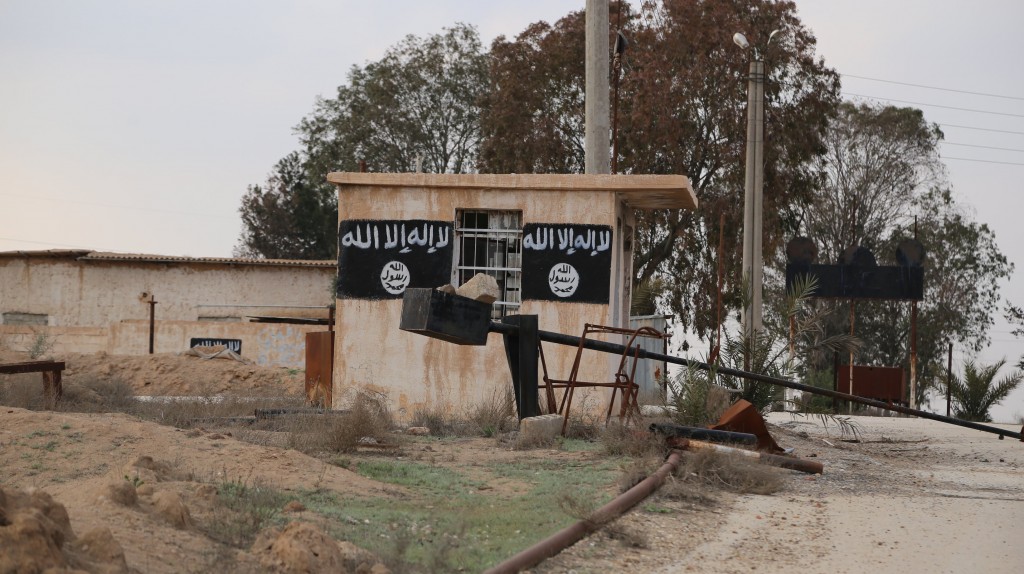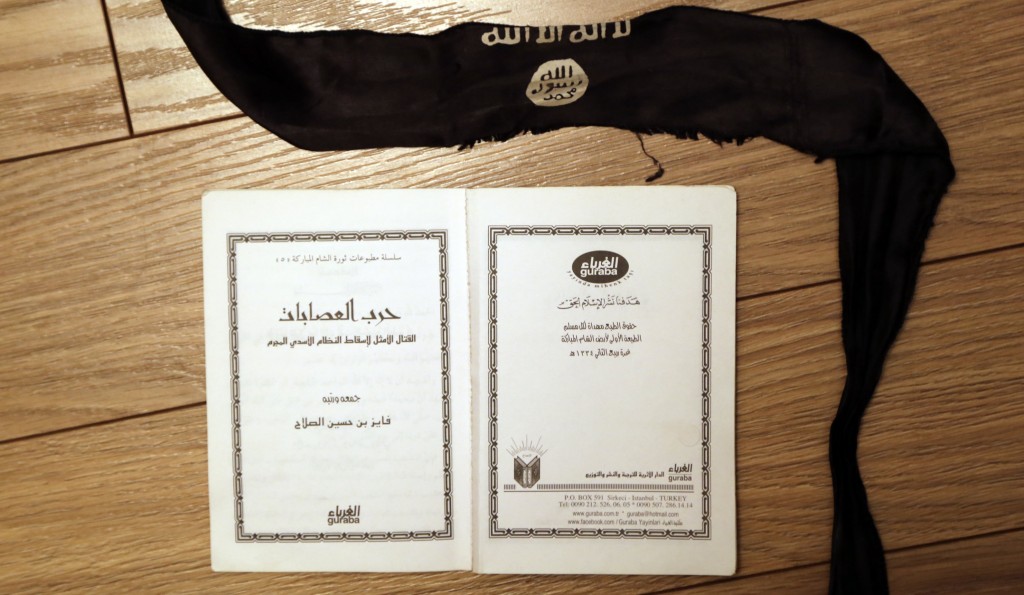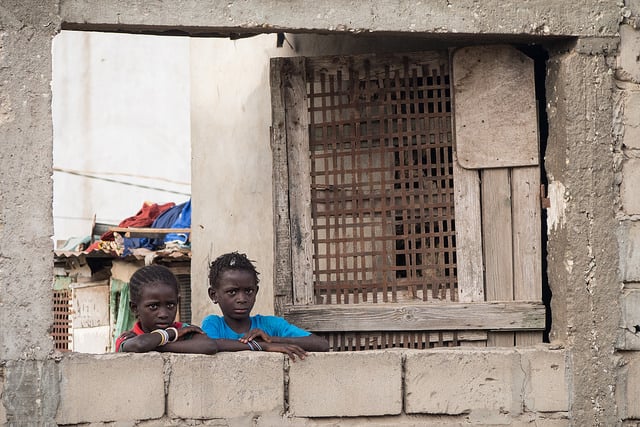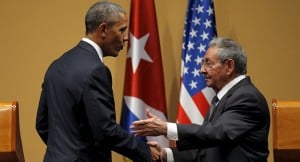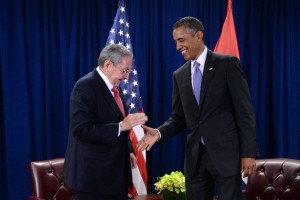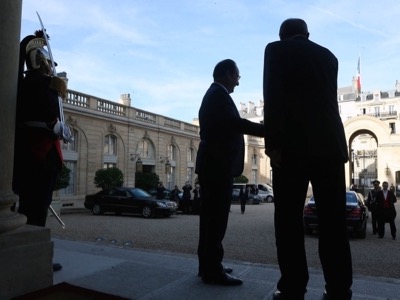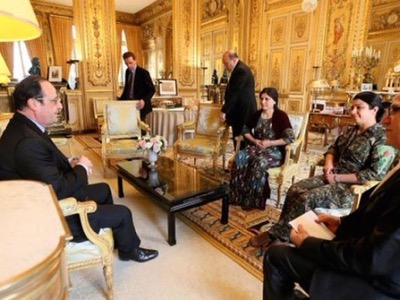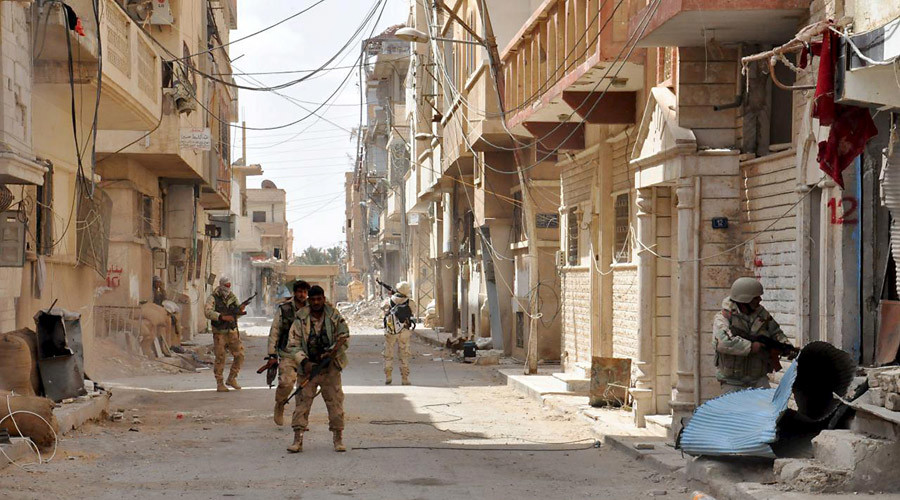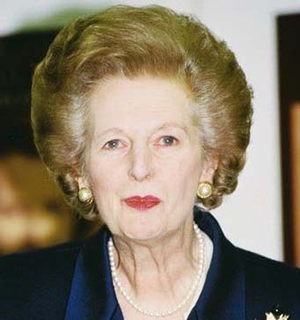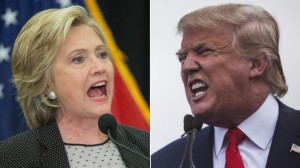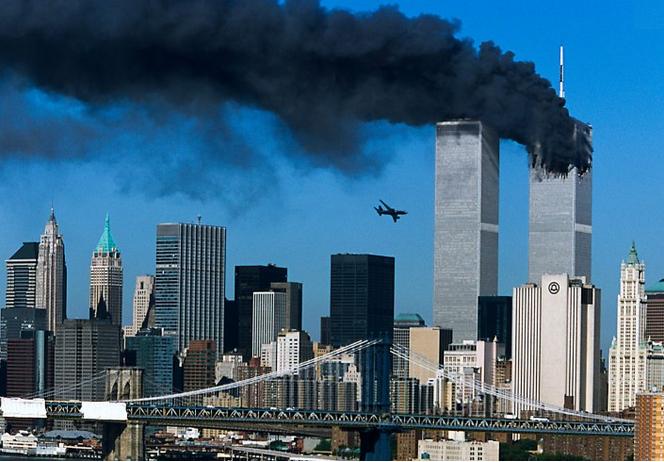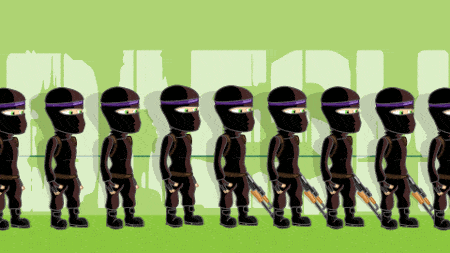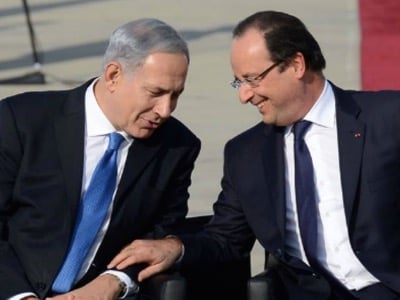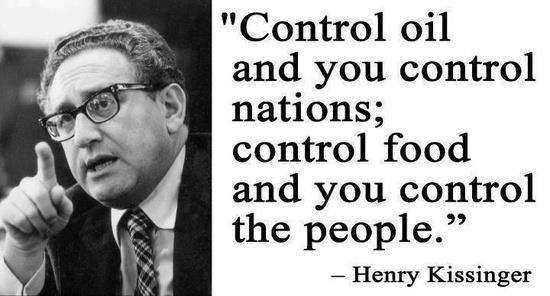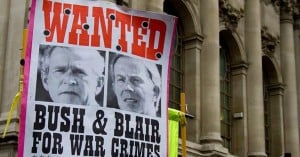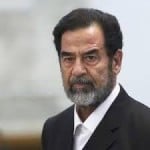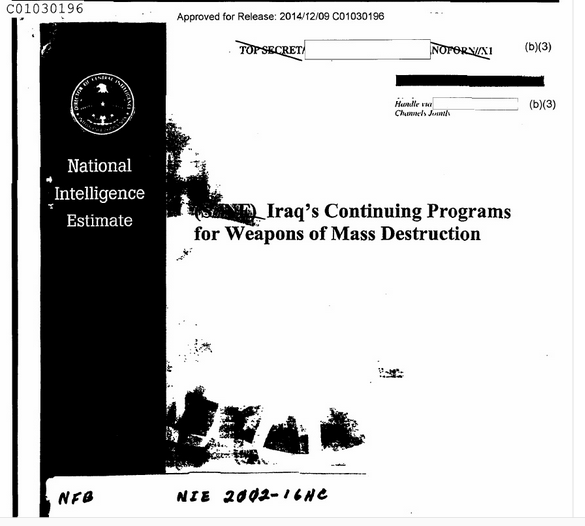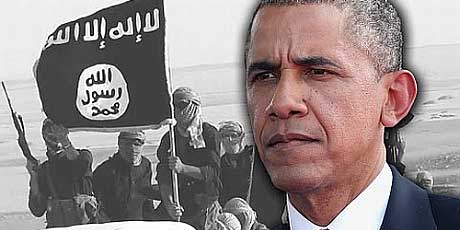Seventeen year ago: March 1999, NATO’s war on Yugoslavia. Article originally published in 1999 on Jackson Progressive, published by Global Research in 2003.
General Wesley Clark (image right) , NATO’s Supreme commander in Europe, confirmed in late May [1999] that “NATO’S air campaign has not reached its peak yet and the alliance should be prepared for more civilian casualties.”.
General Clark also confirmed that “he would be seeking to increase the number of air strikes in Kosovo and expand the range of targets.
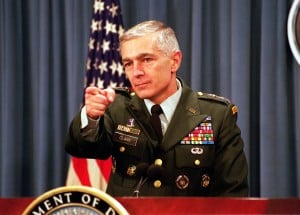 As the bombings entered their third month, there was also a noticeable change in “NATO rhetoric”. The Alliance had become increasingly unrepentant, NATO officials were no longer apologising for civilian casualties, claiming that the latter were contributing to “helping Milosevic’s propaganda machine.”
As the bombings entered their third month, there was also a noticeable change in “NATO rhetoric”. The Alliance had become increasingly unrepentant, NATO officials were no longer apologising for civilian casualties, claiming that the latter were contributing to “helping Milosevic’s propaganda machine.”
Low Intensity Nuclear War
With NATO air-strikes entering their third month, a new stage of the War has unfolded. NATO’s “humanitarian bombings” have been stepped up leading to mounting civilian casualties and human suffering. Thirty percent of those killed in the bombings are children.1 In addition to the use of cluster bombs, the Alliance is waging a “low intensity nuclear war” using toxic radioactive shells and missiles containing depleted uranium. Amply documented, the radioactive fall-out causes cancer potentially affecting millions of people for generations to come. According to a recent scientific report, “the first signs of radiation on children including herpes on the mouth and skin rashes on the back and ankles” have been observed in Yugoslavia since the beginning of the bombings.2
In addition to the radioactive fall-out which has contaminated the environment and the food chain, the Alliance has also bombed Yugoslavia’s major chemical and pharmaceutical plants. The bombing of Galenika, the largest medicine factory in Yugoslavia has contributed to releasing dangerous, highly toxic fumes. When NATO forces bombed plants of the Pancevo petrochemical complex in mid-April “fire broke out and huge quantities of chlorine, ethylene dichloride and vinyl chloride monomer flowed out. Workers at Pancevo, fearing further bombing attacks that would blow up dangerous materials, released tons of ethylene dichloride, a carcinogen, into the Danube.”3
Nato to the “Rescue of Ethnic Albanians”
Ethnic Albanians have not been spared by NATO air raids. Killing ethnic Albanians in Kosovo is said to be “inevitable” in carrying out a “humanitarian operation on behalf of ethnic Albanians”. In addition to the impacts of the ground war between the KLA and the Yugoslav Armed Forces, the bombings and the resulting radioactive fall-out in have been more devastating than in the rest of Yugoslavia.
Presented as a humanitarian mission, the evidence amply confirms that NATO’s brutal air raids of towns and villages in Kosovo have triggered the exodus of refugees. Those who have fled their homes to refugee camps in Macedonia and Albania have nothing to return to, nothing to look forward to… An entire country has been destroyed, its civilian industry and public infrastructure transformed into rubble. Bridges, power plants, schools and hospitals are displayed as “legitimate military targets” selected by NATO’s Combined Air Operations Centre (CAOC) in Vicenza, Italy and carefully “validated prior to the pilot launching his strike.”
With the “diplomatic shuttle” still ongoing, the Alliance is intent on inflicting as much damage on the Yugoslav economy (including Kosovo) as possible prior to reaching a G8 brokered “peace initiative” which will empower them to send in ground troops.
“Allied commanders have steadily widened their list of economic targets… Increasingly, the impact of NATO air strikes has put people out of work… causing water shortages in Belgrade, Novi Sad and other Serbian cities. … [T]he effect was to shut down businesses, strain hospitals’ ability to function and cut off water…”4.
Some 115 medical institutions have been damaged of which several have been totally demolished. And hospital patients –including children and the elderly– are dying due to the lack of water and electricity…5
General Wesley Clark, NATO’s Supreme commander in Europe, confirmed in late May that “NATO’S air campaign has not reached its peak yet and the alliance should be prepared for more civilian casualties.”6. General Clark also confirmed that “he would be seeking to increase the number of air strikes in Kosovo and expand the range of targets.7 As the bombings entered their third month, there was also a noticeable change in “NATO rhetoric”. The Alliance had become increasingly unrepentant, NATO officials were no longer apologising for civilian casualties, claiming that the latter were contributing to “helping Milosevic’s propaganda machine.”
Extending the Conflict Beyond the Balkans
Drowned in the barrage of media images and self-serving analyses, the broader strategic interests and economic causes of the War go unmentioned. The late Sean Gervasi writing in 1995 had anticipated an impending War. According to Gervasi, Washington’s strategic goals stretched well beyond the Balkans. They largely consisted in “installing a Western-style regime in Yugoslavia and reducing the geographic area, power and influence of Serbia to a minimum….”8
In this context, the installation of American power in Southern Europe and the Mediterranean also constitutes a step towards the extension of Washington’s geopolitical sphere of influence beyond the Balkans into the area of the Caspian Sea, Central Asia and West Asia.
In this regard, NATO’s military intervention in Yugoslavia (in violation of international law) also sets a dangerous precedent. It provides “legitimacy” to future military interventions. To achieve its strategic objectives, national economies are destabilised, regional conflicts are financed through the provision of covert support to armed insurgencies… In other words, the conflict in Yugoslavia creates conditions which provide legitimacy to future interventions of the Alliance into the “internal affairs of sovereign nations”.
The consolidation of American strategic interests in Eastern Europe, the Balkans (and beyond) was not only marked by the enlargement of NATO (with the accession of Hungary, Poland and the Czech Republic as NATO members) barely two weeks before the beginning of the bombings, the War in Yugoslavia also coincided with a critical split in geopolitical alignments within the Commonwealth of Independent States (CIS).
In late April, Georgia, the Ukraine, Uzbekistan, Azerbaijan and Moldava signed a pact in Washington, creating GUUAM, a regional alliance which lies strategically at the hub of the Caspian oil and gas wealth, “with Moldava and the Ukraine offering [pipeline] export routes to the West”.9 This geopolitical split bears a direct relationship to the crisis in Yugoslavia. The region is already unstable marked by nationalist conflicts and separatist movements.
The members of this new pro-NATO political grouping not only tacitly support the bombings in Yugoslavia, they have also agreed to “low level military cooperation” with NATO while insisting that “the group is not a military alliance directed against any third party, namely Moscow.”10
Dominated by Western oil interests, the formation of GUUAM is not only intent on excluding Russia from the oil and gas deposits in the Caspian area but also in isolating Moscow politically thereby potentially re-igniting Cold War divisions…
The War Has Stalled Nuclear Arms Controls
In turn, the War in Yugoslavia has significantly stalled nuclear arms-control initiatives leading to the cancellation of an exchange program “that would have had US and Russian nuclear weapons officers in constant contact at year’s end to prevent any launches as a result of Year 2000 computer troubles.”11
Moreover, Russia’s military has also voiced its concern “that the bombing of Yugoslavia could turn out in the very near future to be just a rehearsal for similar strikes on Russia.”12.
According to Dr. Mary-Wynne Ashford, co-president of the Nobel Peace Prize winning International Physicians for the Prevention of Nuclear War (IPPNW), the impact of NATO bombings of Yugoslavia “on nuclear weapons policy is an extremely serious development… Russians feel a sense of betrayal by the West… because NATO took this action outside the UN.”13
Aleksander Arbatov, deputy chairman of the Defence Committee of the Russian State Duma U.S.-Russian relations describes the War in Yugoslavia as the “worst most acute, most dangerous juncture since the U.S.-Soviet Berlin and Cuban missile crises.”14 According to Arbatov:
“START II is dead, co-operation with NATO is frozen, co-operation on missile defence is out of the question, and Moscow’s willingness to co-operate on non-proliferation issues is at an all-time low. Moreover, anti-U.S. sentiment in Russia is real, deep and more wide-spread than ever, and the slogan describing NATO action – “today Serbia, tomorrow Russia,” is “deeply planted in Russian’s minds.”…15 Mary-Wynne Ashford also warns that whereas Russia was moving towards integration with Europe, they [the Russians] now:
“…. perceive their primary threat from the West. Officials in [Russia’s] Foreign Affairs (Arms Control and Disarmament) told us that Russia has no option but to rely on nuclear weapons for its defence because its conventional forces are inadequate…. Even if the bombings stop now, the changes in Russia’s attitude toward the West, its renewed reliance on nuclear weapons with thousands on high alert, and its loss of confidence in international law leave us vulnerable to catastrophe…. This crisis makes de-alerting nuclear weapons more urgent than ever. To those who say the Russian threat is all rhetoric, I reply that rhetoric is what starts wars”.16
The Media War: “Silencing the Silent Majority”
This war is also “a War against the Truth”. With protest movements developing around the World, NATO has reinforced its clutch over the mass media. In a stylised (“wag the dog”) media mascarade, the Alliance is relentlessly portrayed as “the saviour of ethnic Albanian Kosovars”. A full-fledged “cover-up operation” has been set in motion with a view to thwarting public debate on the War. The hidden agenda is to “silence the silent majority.” The Western media heeding to the Alliance’s demands has blatantly misled public opinion. Casually portrayed on TV screens, civilian deaths are justified as inevitable “collateral damage”. According to the Pentagon, “there is no such thing as clean combat.”17
Meanwhile, anti-war commentators (including former ambassadors and OSCE officials) have been carefully removed from mainstream public affairs programmes, TV content is closely scrutinised, the images of civilian deaths and destruction relayed from Belgrade are seldomly and selectively displayed, journalists are under tight supervision. While the media does not hesitate to criticize NATO for having committed “errors” and “tragic mistakes”, the legitimacy of the military operation and its “humanitarian mandate” are not questioned:
“Public opinion is confronted with a loaded question which allows only one answer. In the present war, that question is, “Doesn’t ethnic cleansing have to be stopped?” This simplification allows the media to portray Yugoslavia rather than NATO as the aggressor. The alliance, in a complete inversion of reality, is presented as conducting an essentially defensive war on behalf of the Kosovar Albanians…” when in fact ethnic Albanians are the principle victims of NATO’s “humanitarian bombings.”18
According to NATO’s propaganda machine, “ethnic Albanians do not flee the bombings” and the ground war between the KLA and the Yugoslav Army. According to Diana Johnstone this makes them “nearly unique [because] throughout history, civilians have fled from war zones…. No, as we have heard repeatedly from NATO spokesmen and apologists, Kosovo Albanians run away from only one thing: brutal ethnic cleansing carried out by Serbs.”19
The refugee crisis we are told by NATO is limited to Kosovo. Yet the evidence (withheld by the Western media) confirms that people throughout Serbia are fleeing major cities:
Reliable estimates put the number of refugees who have left Belgrade to escape the bombing at 400,000. Most are women and children, as with the Kosovo Albanians. At least another 500,000 have left Serbia’s other cities, notably Novi Sad and Nish, where NATO bombing has caused air pollution, cut the water supply, and struck purely civilian targets such as market squares. Altogether, according to the Italian daily “Il Manifesto”, the NATO bombing has produced at least a million refugees in Serbia. Predrag Simic, foreign policy adviser to Serbian opposition leader Vuk Draskovic, told a Paris conference [in late May] that Kosovo was being so thoroughly devastated by NATO bombing that nobody, neither Albanians nor Serbs, would be able to go back and live there”.20
Who is Responsible for War Crimes?
Public “disapproval” of NATO bombings is immediately dismissed as “Serb propaganda”. Those who speak out against NATO are branded as “apologists of Milosevic”. While most anti-War critics in NATO countries are not defenders of the Milosevic regime, they are nonetheless expected to be “balanced” in their arguments. “Looking at both sides of the picture is the rule”: anti-war commentators are invited to echo NATO’s fabricated media consensus, to unequivocally “join the bandwagon” against Milosevic. Under these circumstances, an objective understanding and analysis of the role of the Milosovic government since the civil War in Bosnia and in the context of the present crisis in Kosovo has been rendered virtually impossible.
Media double standards? Whereas President Milosevic and four members of his government were indicted by the Hague International Criminal Tribunal (ICTY) (late May) for organising a policy of “ethnic cleansing” in Kosovo, the news media failed to mention that several parallel law suits were launched at The Hague Tribunal (ICTY), accusing NATO leaders of “crimes against humanity.”21
It is also worth mentioning that the UK government (whose Prime Minister Tony Blair is among the list of accused in one of the parallel law suits) has provided The Hague Tribunal with “intelligence on the situation within Kosovo” since the beginning of the bombings.22 Part of this intelligence material was relayed by the KLA with which British Foreign Secretary Robin Cook has been in frequent contact as well as through British Special Forces (SAS) directly collaborating with the KLA.
Law Suit Directed Against NATO Leaders
In May, a group of 15 Canadian lawyers and law professors together with the American Association of Jurists (with members in more than 20 countries) launched a suit against NATO leaders at the ICTY in the Hague.23 The suit points to “open violation” of the United Nations Charter, the NATO treaty, the Geneva Conventions and the “Principles of International Law Recognized by the Nuremberg Tribunal”. The latter makes: “planning, preparation, initiation or waging of a war of aggression or a war in violation of international treaties, agreements or assurances” a crime.24
The list of crimes allegedly committed by NATO leaders includes:
“wilful killing, wilfully causing great suffering or serious injury to body or health, extensive destruction of property,… employment of poisonous weapons [implying radioactive fall-out] or other weapons to cause unnecessary suffering, wanton destruction of cities, towns, or villages, or devastation not justified by military necessity,… “25
Under the terms of reference of the ICTY “a person who planned, instigated, ordered, committed or otherwise aided and abetted in the planning, preparation or execution of a crime shall be individually responsible for the crime” and “the official position of any accused person, whether as Head of State or Government or as a responsible Government official, shall not relieve such person of criminal responsibility or mitigate punishment.”26
United Nations High Commissioner for Human Rights Mary Robinson (and former President of Ireland) confirmed in Geneva on 30 April 1999 that the Prosecutor of the War Crimes Tribunal (ICTY) has the mandate not only to prosecute Serb forces but that the Kosovo Liberation Army (KLA) and NATO may also come under scrutiny, “if it appears that serious violations of international humanitarian law have occurred.”
According to Walter J. Rockler, former prosecutor of the Nuremberg War Crimes Trials:
“The bombing war also violates and shreds the basic provisions of the United Nations Charter and other conventions and treaties; the attack on Yugoslavia constitutes the most brazen international aggression since the Nazis attacked Poland to prevent “Polish atrocities” against Germans. The United States has discarded pretensions to international legality and decency, and embarked on a course of raw imperialism run amok.”27
Shaky Evidence of a “Humanitarian Catastrophe” Prior to the Bombings
In the course of “covering-up” the real motivations of NATO in launching the War, the international media has also failed to mention that an official intelligence report of the German Foreign Ministry (used to establish the eligibility of political refugees from Kosovo) confirmed that there was no evidence of “ethnic cleansing” in Kosovo in the months immediately preceding the bombings. Who is lying? German Foreign Minister Joschka Fischer had justified NATO’s intervention pointing to a “humanitarian catastrophe”, yet the internal documents of his own ministry say exactly the opposite:
“Even in Kosovo an explicit political persecution linked to Albanian ethnicity is not verifiable. The East of Kosovo is still not involved in armed conflict. Public life in cities like Pristina, Urosevac, Gnjilan, etc. has, in the entire conflict period, continued on a relatively normal basis. The actions of the security forces [were] not directed against the Kosovo-Albanians as an ethnically defined group, but against the military opponent [KLA] and its actual or alleged supporters.”… “29
[W]ith an agreement made with the Serbian leadership at the end of 1998 … both the security situation and the conditions of life of the Albanian-derived population have noticeably improved… Specifically in the larger cities public life has since returned to relative normality.”29
The above assessments are broadly consistent with several independent evaluations of the humanitarian situation in Kosovo prior to the onslaught of the bombing campaign. Roland Keith, a former field office director of the OSCE Kosovo Verification Mission (KVM), who left Kosovo on March 20th reported that most of the violence in Kosovo was instigated by the Kosovo Liberation Army (KLA):
“Upon my arrival the war increasingly evolved into a mid intensity conflict as ambushes, the encroachment of critical lines of communication and the [KLA] kidnapping of security forces resulted in a significant increase in government casualties which in turn led to major Yugoslavian reprisal security operations… By the beginning of March these terror and counter-terror operations led to the inhabitants of numerous villages fleeing, or being dispersed to either other villages, cities or the hills to seek refuge… The situation was clearly that KLA provocations, as personally witnessed in ambushes of security patrols which inflicted fatal and other casualties, were clear violations of the previous October’s agreement [and United Nations Security Council Resolution 1199]. The security forces responded and the consequent security harassment and counter-operations led to an intensified insurrectionary war, but as I have stated elsewhere, I did not witness, nor did I have knowledge of any incidents of so-called “ethnic cleansing” and there certainly were no occurrences of “genocidal policies” while I was with the KVM in Kosovo. What has transpired since the OSCE monitors were evacuated on March 20, in order to deliver the penultimate warning to force Yugoslavian compliance with the Rambouillet and subsequent Paris documents and the commencement of the NATO air bombardment of March 24, obviously has resulted in human rights abuses and a very significant humanitarian disaster as some 600,000 Albanian Kosovars have fled or been expelled from the province. This did not occur, though, before March 20, so I would attribute the humanitarian disaster directly or indirectly to the NATO air bombardment and resulting anti-terrorist campaign.”30
Chronology of NATO Planning
Carefully removed from the public eye, preparations for both “the air campaign” and “the ground War” have been ongoing for almost a year prior to the beginning of NATO’s “humanitarian bombings” on March 24th 1999.
Responding to broad strategic and economic objectives, the Alliance’s first priority was to secure the stationing of armed combat troops in Macedonia on the immediate border with Kosovo. US Secretary of Defense William Cohen had travelled to Skopje in late December 1997 for discussions with the Macedonian government and Military. These high levels talks were followed a few months later by the visit of Macedonia’s Defense Minister L. Kitanoski to Washington for meetings at the Pentagon. On the agenda: the establishment of a NATO base in Macedonia.31
No time was lost: on May 6, 1998, the NATO Council met “to review alliance efforts” in the region; a major military exercise entitled “Cooperative Best Effort” was slated to take place in Macedonia in September. NATO nonetheless “reassured the international community” that the military exercise was not meant to be “a rehearsal”, rather it was to enable “NATO military authorities to study various options. Decisions on whether to execute any of those options would be a matter for future decision.”32
Largely the consequence of KLA terrorism, the deterioration of the security situation in Kosovo conveniently provided NATO with a pretext to build up its ground forces in Macedonia (composed largely of British and French troops). According to NATO, it was therefore necessary to envisage “a more complicated and ambitious [military] exercise [in Macedonia] to send a clear political signal [to Belgrade] of NATO’s involvement”.33
The Role of the Kosovo Liberation Army
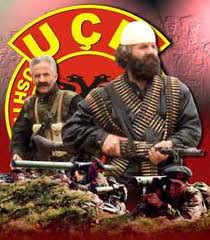 In parallel with the setting up of its military operations in Albania and Macedonia, NATO had established direct links with the Kosovo Liberation Army (KLA). A US Department of Defense briefing confirms in this regard that “initial contacts” between the KLA and NATO had taken place by mid-1998:
In parallel with the setting up of its military operations in Albania and Macedonia, NATO had established direct links with the Kosovo Liberation Army (KLA). A US Department of Defense briefing confirms in this regard that “initial contacts” between the KLA and NATO had taken place by mid-1998:
“…the realization has come to people [in NATO] that we [NATO] have to have the UCK [acronym for KLA in Albanian] involved in this process because they have shown at least the potential to be rejectionists of any deal that could be worked out there with the existing Kosovo parties. So somehow they have to be brought in and that’s why we’ve made some initial contacts there with the group, hopefully the right people in the group, to try and bring them into this negotiating process. 34
While these “initial contacts” were acknowledged by NATO officially only in mid-1998, the KLA had (according to several reports) been receiving “covert support” and training from the CIA and Germany’s Bundes Nachrichten Dienst (BND) since the mid-nineties.35
The concurrent building up of KLA forces was part of NATO planning. By mid-1998 “covert support” had been gradually replaced –despite the KLA’s links to organised crime– by official (“overt”) support by the military Alliance in violation of UN Security Council Resolution UNSCR 1160 of 31 March 1998 which condemned:
“…all acts of terrorism by the Kosovo Liberation Army or any other group or individual and all external support for terrorist activity in Kosovo, including finance, arms and training.”
On 24 September 1998, another key UN Security Council Resolution (UNSCR 1199) was adopted which called “upon the authorities in Belgrade and the leadership of the Kosovar Albanian community urgently to enter without preconditions into a meaningful dialogue on political status issues.” It also required Belgrade to withdraw its troops from Kosovo.
Following a renewed wave of KLA terrorism, the Yugoslav authorities were blamed for the “crackdowns on ethnic Albanians” providing NATO defense ministers meeting in Vilmoura Portugal (September 24th on the same day as the adoption of UNSCR 1199) with the “justification” to issue an “activation warning” for a campaign of air strikes against Serb positions. The Vilmoura statement called upon Belgrade to “take immediate steps to alleviate the humanitarian situation…, stop repressive actions against the population and seek a political solution through negotiations with the Albanian majority”.36
This so-called “activation warning” was followed in mid-October by “an activation order” by the North Atlantic Council authorising NATO’s Supreme Commander for Europe General Wesley Clark to initiate “limited air strikes” and a “phased air campaign” … should the Yugoslav authorities refuse to comply with UNSCR 1199.37
Under the impending threat of air strikes, a partial withdrawal was carried out by Belgrade (following the adoption of UNSCR 1199) creating almost immediately conditions for the KLA to occupy positions previously held by retreating Serb forces. In turn, the strengthening of the KLA was accompanied by renewed terrorist activity and a consequent “worsening of the security situation”. NATO’s hidden objective, in this regard, was to use the KLA insurgency to further provoke ethnic tensions and generate social strife in Kosovo.
In the meantime, US envoy Richard Holbrooke had entered into discussions with President Milosovic. Forged under the threat of NATO air strikes, negotiations on Kosovo’s political status had also been initiated in Pristina between a Serbian delegation led by President Milan Milutinovic and Ibrahim Rugova, President of the Democratic League (DLK) representing ethnic Albanians. While Mr Christopher Hill, the US envoy had been invited as an observer to these meetings, Milutinovic had insisted that the negotiations (which proceeded from UNSCR 1199) were an internal matter.
Following the agreement between US envoy Richard Holbrooke and President Slobodan Milosevic, Yugoslavia was to complete negotiations on “a framework for a political settlement” by the 2nd of November 1998. Moreover, a Verification Mission to establish compliance with resolutions UNSCR 1160 and UNSCR 1199, was put in place in Kosovo under the auspices of the Organization for Security and Cooperation in Europe (OSCE). A parallel NATO air verification mission (complementing the OSCE verification mission) was established following an agreement signed in Belgrade on 15 October 1998 by the Yugoslav Chief of General Staff and NATO Supreme Allied Commander for Europe, General Wesley Clark.
The terms of both the OSCE and NATO verification agreements were subsequently embodied in UNSCR 1260 of October 24th. Whereas Belgrade was given a 96 hour “deadline for compliance”, the Alliance decided to postpone the initiation of air strikes following talks in Belgrade (October 25-26) between President Slobodan Milosevic and General Wesley Clark. According to the Alliance statement: “NATO will remain prepared to carry out air operations should they be necessary” 38. In the meantime, NATO launched Operation Eagle Eye using unarmed aircraft and unmanned predator aerial vehicles (UAVs). Eagle Eye surveillance activities were coordinated with the “ground verification” mission conducted by OSCE observer teams and by the Kosovo Diplomatic Observer Mission (KDOM).
A Former “Iran-Contragate” Official Heads the OSCE Verification Mission
 In the meantime, a career US diplomat, Ambassador William G. Walker [see image on the right] was appointed Head of the OSCE Kosovo Verification Mission (KVM). A tailor-made assignment: Walker was well-known for his role in the “Iran-Contragate” scandal during the Reagan administration. The KLA insurgency was in many regards a “carbon copy” of the Nicaraguan Contras which had also been funded by drug money with covert support from the CIA.
In the meantime, a career US diplomat, Ambassador William G. Walker [see image on the right] was appointed Head of the OSCE Kosovo Verification Mission (KVM). A tailor-made assignment: Walker was well-known for his role in the “Iran-Contragate” scandal during the Reagan administration. The KLA insurgency was in many regards a “carbon copy” of the Nicaraguan Contras which had also been funded by drug money with covert support from the CIA.
Well documented by court files, William G. Walker –in association with Oliver North– played a key role in channelling covert funding to the Nicaraguan Contras while serving as Deputy Assistant Secretary of State for Inter-American Affairs in the Reagan Administration. In this capacity, he became a special assistant to Assistant Secretary of State Elliot Abrams, “a figure whose name would soon be making its way into the headlines on a daily basis in connection with … the “Iran-Contra” affair.”39
William G. Walker had been involved in the so-called Nicaraguan Humanitarian Assistance Office (“NHAO”) in the State Department which was a cover-up fund whereby covert military aid was supplied to the Contras. The objective was to circumvent the so-called “Boland Amendments”, –ie. “riders” to the Department of Defense Appropriation Act, “which prohibited the [US] government from spending money for the purpose of overthrowing the government of Nicaragua”. 40 Confirmed by files of the US Court of Appeal (District of Columbia), “Walker attended some meetings of the Restricted Interagency Group for Central America, of which Oliver North was a member”.41
Walker was never indicted for criminal wrong-doings in the Iran- Contragate scandal. Upon completing his work with Oliver North, he was appointed US Ambassador to El Salvador. His stint in El Salvador coincided with the rise of the death squadrons and a period during which the country was virtually “under the grip of US sponsored State terror.”42
In Kosovo, William G. Walker applied his skills in covert operations acquired in Central America. As head of the Kosovo Verification Mission (KVM), Walker maintained close links to the KLA military command in the field.43 From the outset of his mission in Kosovo, he used his position to pursue the interests of the Alliance.
“The Racak Massacre”
The so-called “Racak massacre” occurred shortly before the launching of the Rambouillet “peace initiative”. although it turned out to be a fake, the Racak massacre nonetheless played a key role in “setting the stage” for NATO’s air raids. William Walker declared (in his capacity as head of KVM) that the Yugoslav police had carried out a massacre of civilians at Racak on January 15th. The Yugoslav authorities retorted that local police had in fact conducted an operation in this village against the Kosovo Libration Army and that several KLA soliders had died in cross-fire. As later reported by several French newspapers (Le Monde, Le Figaro and Liberation), it was confirmed that the “Racak massacre” was indeed a fake put together with a view to discrediting Belgrade:
“Eventually, even the Los Angeles Times joined in, running a story entitled “Racak Massacre Questions: Were Atrocities Faked?” The theory behind all these exposs was that the KLA had gathered their own dead after the battle, removed their uniforms, put them in civilian clothes, and then called in the observers.”44.
The Rambouillet Process
On January 22, senior officials of the so-called “Contact Group” of six countries (including the US, Russia, Britain, France, Germany and Italy) meeting in London called for a peace conference which would bring together the Yugoslav government and “representatives of ethnic Albanians.” In turn, NATO warned that it was “ready to act” if the peace plan to be finalised by the Contact Group were rejected. United Nations Secretary General Kofi Annan concurred during a visit to NATO headquarters in Brussels that the threat of force was “essential” to press both sides into a settlement.45
In the meantime, while supporting the KLA insurgency on the ground, the Alliance had also contributed to spearheading KLA leader Hashim Thaci (a 29 year “freedom fighter”) into heading the Kosovar delegation to Rambouillet, on behalf of the ethnic Albanian majority. The Democratic League headed by Ibrahim Rugova had been deliberately side-stepped. The Alliance was relying on its KLA puppets (linked to organised crime) to rubber-stamp an agreement which would have transformed Kosovo into an occupied territory under NATO military rule.
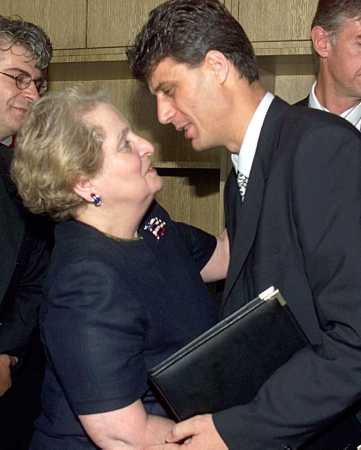
Albright and KLA leader Hashim Thaci
While negotiations were ongoing in Rambouillet, NATO decided to increase the readiness of its assigned forces “so as to make them able to execute the operation within 48 hours”.46 In other words, “peace negotiations” had been initiated in Rambouillet (contrary to the Vienna Convention) under the threat of impending air strikes. NATO had granted a three weeks period to the parties meeting in Rambouillet to conclude negotiations.
On February 19, one day prior to the deadline, NATO Secretary General Javier Solano reaffirmed that, “if no agreement is reached by the deadline set by the Contact Group, NATO is ready to take whatever measures are necessary to avert a humanitarian catastrophe”.47 And on 22 March 1999, NATO’S North Atlantic Council authorised “the Secretary General to decide, subject to further consultations, on a broader range of air operations if necessary.”48 And on 23 March 1999, NATO’s Secretary General directed the Supreme Allied Commander in Europe General Wesley Clark to initiate air operations in the Federal Republic of Yugoslavia. Air operations commenced on 24 March 1999 under the nickname “Operation Allied Force.”49
Sending in Ground Troups Under a G-8 “Peace Plan”
Since the brutal onslaught of the air campaign on March 24, the Alliance has continued to build up its ground combat troops on the Macedonian border in anticipation of an impending military invasion. Initially NATO had envisaged a Kosovo occupation force of 50,000 troops which could be increased to 60,000 with a larger US share than the 4,000 initially envisaged under Rambouillet.
In other words, the proposed invasion force was to be more than double that under Rambouillet (28,000 troops) while also enforcing all the normative clauses of the initial Rambouillet agreement including the “free movement” of NATO combat units throughout Yugoslavia.
In the meantime, NATO’s military establishment was forcing the pace of international diplomacy. The Alliance hinted in May that a ground offensive could be launched prior to reaching a “peace agreement” sanctioned by the G8 and ratified by the United Nations Security Council.
In addition to the 16,000 ground troops already stationed (well before the beginning of the bombings) in Macedonia (of which almost half are British), some 7000 NATO troops and “special forces” were also present in Albania, not to mention the NATO troops stationed in Bosnia-Herzegovina under Operation Joint Endeavour:
“We’ve already put quite a lot of troops in Macedonia as the nucleus of that operation”, said British Foreign Secretary Robin Cook. “There are over 12,000 there already… and last weekend [14-15 May] we committed another two and a half thousand to go there. We need to build up – actually we need to build up now…”50.
In late May, the 60,000 troops target was revised to 150,000. Alliance officials estimating that “if the alliance later decides to mobilize for a land attack … an invasion force could number more than 150,000 soldiers.”51 Prime Minister Tony Blair in a separate statement had (without any form of parliamentary debate) confirmed the sending of 50,000 British troops as part of the 150,000 invasion force.
In early June, a NATO led invasion under a bogus G8-UN peace initiative was put forth. While the latter served to appease and distract public opinion, it usefully provided the Alliance with a semblance of legitimacy under the UN Charter. It also purported to overcome the hesitation of elected politicians including German Chancellor Gerhard Schroeder and Italian Prime Minister Massimo D’Alema. The US Administration also required the “rubber stamp” of the United Nations Security Council so as to acquire the assent of the Republican dominated Congress:
“House and Senate Democrats agree there is little support at this point for launching ground troops… even if Clinton and other NATO leaders could reach a consensus on such a dramatic shift in tactics. For now, Clinton has said he is opposed to ground troops.”52
The US House of Representatives (in what appeared to be a partisan “anti-Clinton” vote) has declined to even endorse the air campaign while signifying its refusal to authorize a “ground war” without congressional approval. In early April, Republicans and Democrats joined hands in the House and threw out a proposed “declaration of war on Yugoslavia” by an overwhelming 427-2 vote.
In late May, seventeen members of Congress launched a suit against President Clinton pointing to the blatant breach of the US Constitution:
“that the Defendant, the President of the United States, is unconstitutionally continuing an offensive military attack by United States Armed Forces against the Federal Republic of Yugoslavia without obtaining a declaration of war or other explicit authority from the Congress of the United States as required by Article I, Section 8, Clause 11 of the Constitution, and despite Congress’ decision not to authorize such action.” 53
The law suit launched in District Court (District of Columbia) also pointed to the violation of the War Powers Resolution of 1973, a Vietnam War-era legislation which requires “the sitting President congressional approval for the “introduction into hostilities” of the U.S. armed forces for longer than 60 days”:
Plaintiffs also seek a declaration that a report pursuant to Section 1543(a)(1) of the War Powers Resolution was required to be submitted on March 26, 1999, within 48 hours of the introduction into hostilities in the Federal Republic of Yugoslavia of United States Armed Forces. Additionally, Plaintiffs seek a declaration that, pursuant to Section 1544(b) of the Resolution, the President must terminate the use of United States Armed Forces engaged in hostilities against the Federal Republic of Yugoslavia no later than sixty calendar days after March 26, 1999. The President must do so unless the Congress declares war or enacts other explicit authorization, or has extended the sixty day period, or the President determines that thirty additional days are necessary to safely withdraw United States Armed Forces from combat.54
NATO as “Peace-keepers”
Echoing the barrage of self-serving NATO propaganda, the media scam now consists in skilfully portraying Alliance ground troops as bona fide “peace-keepers”. Public opinion should not be deluded as to the meaning of a G8-UN brokered diplomatic solution.
An “international presence” consisting largely of NATO troops under the G8 proposal (ratified by the Serbian Parliament in early June) could include a token participation of “non-NATO forces” including Russia and the Ukraine. While Moscow agreed in early June that all Yugoslav forces be withdrawn from Kosovo alongside the disarmement of the KLA, Russian envoy Viktor Chernomyrdin nonetheless insisted that the command structure of the proposed international force be under the control and jurisdiction of the United Nations.
Despite his perfunctory condemnation of NATO bombings, Russian President Boris Yeltsin is a Western puppet. Chernomyrdin writing in the Washington Post had earlier warned that a continuation of the air raids could hurt US-Russian relations: “The world has never in this decade been so close as now to be on brink of nuclear war…” adding that “Russia would pull out of the negotiating process if NATO bombing, which started March 24, doesn’t stop soon.”55
In the meantime, the Alliance, however, had persisted in maintaining a unified NATO command structure (which was unacceptable to Moscow and Belgrade). NATO has also stepped up the bombings as a means of pressuring Belgrade into accepting (without prior negotiation) NATO’s “five conditions”.
If the G-8 proposal were to be ratified, NATO would first send in US Marines into Kosovo from the 26th Marine Expeditionary Unit in the Adriatic Sea. The Marines would be part of a so-called “Enabling Force” prior to the moving in of a force of 50,000 troops.
A G-8 “peace proposal” (implying a de facto military occupation of Kosovo) could be formally ratified at the Cologne G7-G8 Summit in mid-June. All G7 heads of government and heads of State together with President Boris Yeltsin will be in attendance at Cologne in what is hoped to be a highflown display of unity in favour of a (G8 sanctioned) NATO led invasion. NATO nonetheless warned in early June that should the diplomatic initiative not succeed, the Alliance would proceed with a ground invasion involving 150,000 troops….
The Sending in of “Special Forces”
In the meantime, an incipient undeclared ground War has already commenced: special British, French and American forces were reported to be advising the KLA in the conduct of ground combat operations against regular units of the Yugoslav Army. To support this initiative, a Republican sponsored bill was launched in the US Congress to provide direct military aid to the KLA.
These “special forces” are “advising the rebels at their strongholds in northern Albania, where the KLA has launched a major recruitment and training operation. According to high-ranking KLA officials, the [British] SAS is using two camps near Tirana, the Albanian capital, and another on the Kosovar border to teach KLA officers how to conduct intelligence-gathering operations on Serbian positions”.56 In May, three French special forces officers wearing uniforms of the French Armed Forces (“Parachutistes”) were reported killed on the Albania-Yugoslavia border by the Yugoslav daily Vecernje Novosti. According to the French daily Libration, the three men were allegedly “instructors in charge of coordinating ground war activities by the KLA…”57.
An Unholy “Marriage of Convenience”
In addition to the dispatch of Western special forces, Mujehadeen mercenaries and other Islamic fundamentalist groups (financed inter alia by Iran and Saudi financier Osmane Bin Laden) have been collaborating with the KLA in the ground war.
“[B]y early December 1997, Iranian intelligence had already delivered the first shipments of hand grenades, machine-guns, assault rifles, night vision equipment, and communications gear… Moreover, the Iranians began sending promising Albanian and UCK [KLA] commanders for advanced military training in al-Quds [special] forces and IRGC camps in Iran…58.
Bin Laden’s Al Qa’ida allegedly responsible for last year’s African embassy bombings “was one of several fundamentalist groups that had sent units to fight in Kosovo, … Bin Laden is believed to have established an operation in Albania in 1994 … Albanian sources say Sali Berisha, who was then president, had links with some groups that later proved to be extreme fundamentalists”.59
Nato in Close Liaison with KLA Ground Operations
According to Jane Defence Weekly (10 May 1999), the KLA’s new chief of staff is former Croatian Armed Forces Brigadier General Agim Ceku (an ethnic Albanian) who is currently under investigation by the War Crimes Tribunal in the Hague (ICTY) for his role in “summary executions, indiscriminate shelling of civilian populations and `ethnic cleansing’ during the War in Bosnia.”60
NATO spokesman Jamie Shea’s response to the appointment of a War criminal as KLA chief of staff was communicated in a Press Briefing:
“I have always made it clear, and you have heard me say this, that NATO has no direct contacts with the KLA. Who they appoint as their leaders, that is entirely their own affair. I don’t have any comment on that whatever.”61
Shea’s statement that NATO has “no direct contacts with the KLA” is a lie. It is in overt contradiction with other Alliance statements: “I speak regularly to Hashim Thaci, the leader of the Kosovo Liberation Army who’s in Kosovo. I spoke to him at the end of last week” said British Foreign Secretary Robin Cook.62
Operations on the ground (led by the KLA and NATO Special forces) are now being carefully coordinated with the air campaign. Moreover, some 50 Canadian armed forces “are working with the KLA in Kosovo” to help report “where the bombs are falling” so they can better target “where the next bomb should go.”63
Pentagon Sponsored Mercenaries in Kosovo
The KLA has also been provided with “a long-term training deal with Military and Professional Resources International [MPRI], a mercenary company run by former American officers who operate with semi-official approval from the Pentagon and played a key role in building up Croatia’s armed forces [during the War in Bosnia].”64 And General Brigadier Agim Ceku (despite his role in “ethnic cleansing” in Bosnia), is currently collaborating closely with the Pentagon’s mercenary outfit MPRI on behalf of the KLA.
The KLA to Form a “Post-conflict Government”
A self-proclaimed provisional KLA government of Kosovo has been established. With KLA leader Hashim Thaci as Prime Minister designate, the KLA has already been promised a central role in the formation of a “post-conflict government”.
While openly promoting a “freedom movement” with links to the drug trade, NATO was also intent in bypassing the civilian Kosovo Democratic League and its leader Ibrahim Rugova who had earlier called for an end to the bombings. Rugova was branded as a “traitor” by the KLA. According to Albanian state-run TV, the KLA had sentenced Rugova to death accusing him of being “an agent of the regime in Belgrade.”65
In April, Fehmi Agani, one of Rugova’s closest collaborators in the Democratic League was killed. The Serbs were blamed by NATO spokesperson Jamie Shea for having assassinated Agani. According to Skopje paper Makedonija Danas quoting reliable sources in Albania: “Agani was killed… on the orders of Tirana where Thaci is located with the members of his illegal government”.66
According to a report of the Foreign Policy Institute:
“…the KLA have [no] qualms about murdering Rugova’s collaborators, whom it accused of the “crime” of moderation. Most recently, although Rugova’s recent meeting with Milosevic may well have been under duress, the KLA declared Rugova a “traitor” – yet another step toward eliminating any competitors for political power within Kosovo.”67
The KLA military regime had replaced the duly elected (by ethnic Albanians) civilian provisional Kosovar government of President Ibrahim Rugova. In a statement issued in April, the KLA considered the (parallel) “parliamentary elections” organised by the Democratic League and held in March 1998 to be invalid.
The self-proclaimed Kosovar administration is made up of the KLA and the Democratic Union Movement (LBD), a coalition of five opposition parties opposed to Rugova’s Democratic League (LDK). In addition to the position of prime minister, the KLA controls the ministries of finance, public order and defence. In the words of US State Department spokesman James Foley:
`We want to develop a good relationship with them [the KLA] as they transform themselves into a politically-oriented organization,’ ..`[W]e believe that we have a lot of advice and a lot of help that we can provide to them if they become precisely the kind of political actor we would like to see them become.’68
With the KLA poised to play a central role in the formation of a “post conflict” government, the tendency is towards the installation of a “Mafia State” with links to the drug trade. The US State Department’s position is that the KLA would “not be allowed to continue as a military force but would have the chance to move forward in their quest for self government under a ‘different context'” meaning the inauguration of a de facto “narco-democracy” under NATO protection: “If we can help them and they want us to help them in that effort of transformation, I think it’s nothing that anybody can argue with.”69
In recent developments, the Alliance, however, has sought through the intermediation of US Secretary of State Madeleine Albright to reconcile divisions between Thachi, Rugova and other ethnic Albanian leaders “primarily with a view to strengthening its [the Alliance’s] own position in the region.”70
Imposing “Free Market” Reforms
Wall Street analysts concur that “war is good for business” particularly during a period of “economic slowdown”. The US Congress has approved increased budgetary allocations to finance the War in Yugoslavia which will result in multi-billion contracts for America’s Defense industry. In turn, the War will boost the military-industrial complex and its related high tech sectors in the US and Western Europe. A ground war combined with a prolonged military occupation (as in Bosnia) will prop up military spending. In turn, covert support and financing of “freedom fighters” (extending beyond the Balkans into Central Asia and the Middle East) will contribute to boosting the lucrative contraband in small arms for an expanding market of insurgent nationalist movements.
“Economic Reconstruction”
The “post conflict” agenda (under the proposed G8 “peace initiative” consists in establishing in Kosovo an occupied territory under Western administration (broadly on the same model as the 1995 Dayton Agreement imposed on Bosnia-Herzegovina).
“Free market reforms” are envisaged for Kosovo under the supervision of the Bretton Woods institutions. Article I (Chapter 4a) of the Rambouillet Agreement stipulates that: “The economy of Kosovo shall function in accordance with free market principles”.
“Civilian administration [in Kosovo] and reconstruction would be carried out by non-military bodies including the EU and the OSCE, with input from the World Bank and the IMF to rebuild war-damaged infrastructure and rehouse refugees.71
In close liaison with NATO, the Bretton Woods institutions had already analyzed the consequences of an eventual military intervention leading to the military occupation of Kosovo: almost a year prior to the beginning of the War, the World Bank conducted “simulations” which “anticipated the possibility of an emergency scenario arising out of the tensions in Kosovo”.72 The “simulations” conducted in Washington have in fact already been translated into a panoply of “emergency recovery loans” for Macedonia and Albania, and there is more to come… Since the imposition of the embargo, Yugoslavia, however, is no longer considered a member of the Bretton Woods institutions and will not be eligible for IMF-World Bank loans until the sanctions are lifted.
The proposed “Marshall Plan” for the Balkans is a delusion. We recall that in Bosnia, the costs of reconstruction were of the order of 50 billion dollars. Western donors initially pledged $3 billion in reconstruction loans, yet only a meagre $518 million dollars were granted in December 1995, part of which was tagged (under the terms of the Dayton Peace Accords) to finance some of the local civilian costs of the Implementation Force’s (IFOR) military deployment as well as repay debt arrears with international creditors.73
The eventual “reconstruction” of Yugoslavia formulated in the context of the “free market” reforms and financed by international debt largely purport to create a safe haven for foreign investors rather than rehabilitate the country’s economic and social infrastructure. The IMF’s lethal “economic medicine” will be imposed, the national economy will be dismantled, European and American banks will take over financial institutions, local industrial enterprises which have not been totally destroyed will be driven into bankruptcy. The most profitable State assets will be transferred into the hands of foreign capital under the World Bank sponsored privatisation programme. In turn, “strong economic medicine” imposed by external creditors will contribute to further boosting a criminal economy (already implanted in Albania and Macedonia) which feeds on poverty and economic dislocation.
“The Allies will work with the rest of the international community to help rebuild Kosovo once the crisis is over: The International Monetary Fund and Group of Seven industrialized countries are among those who stand ready to offer financial help to the countries of the region. We want to ensure proper co-ordination of aid and help countries to respond to the effects of the crisis. This should go hand in hand with the necessary structural reforms in the countries affected — helped by budget support from the international community.74
In turn, the so-called “reconstruction” of the Balkans by foreign capital will signify multi-billion contracts to multinational firms to rebuild roads, airports and bridges which will eventually be required (once the embargo is lifted) to facilitate the “free movement” of capital and commodities.
The proposed “Marshall Plan” financed by the World Bank and the European Development Bank (EBRD) as well as private creditors will largely benefit Western mining, petroleum and construction companies while fuelling the region’s external debt well into the third millennium. And the countries of the Balkans are slated to reimburse this debt through the laundering of dirty money in the domestic banking system which will be deregulated under the supervision of Western financial institutions. Narco-dollars from the multi-billion dollar Balkans drug trade will be recycled (through the banking system) and channeled towards servicing the external debt as well as “financing” the costs of “reconstruction”.
The pattern for Kosovo is, in this regard, similar to that of Macedonia and Albania. Since the early 1990s, the IMF’s reforms have impoverished the Albanian population while spearheading the national economy into bankruptcy. The IMF’s deadly economic therapy transforms countries into open territories. In Albania and Macedonia it has fostered the growth of illicit trade and the criminalisation of State institutions.
Moreover, even prior to the influx of refugees, NATO troops in Macedonia and Albania had already occupied civilian facilities (including hotels, schools, barracks and even hospitals) without compensating the national governments for the use of local services.75
In a cruel irony, a significant part of these incurred costs as well as those associated with the refugee crisis are now to be financed not by the Alliance but by the national governments on borrowed money:
“[T]he Albanian government’s formal structures have been paralysed by the crisis. The country’s treasury has been emptied by the initial efforts to help the refugees.”76
Who Will Pay War Reparations?
The extensive destruction of Yugoslavia, would normally require the Alliance to “pay war reparations” to Belgrade. However, following a pattern set in both Vietnam and Iraq, the Alliance will no doubt compel Belgrade “to pay for the costs” of Operation Allied Force (including the cruise missiles and radioactive shells) as a condition for the “normalisation of relations” and the lifting of the economic embargo.
We recall in this regard that whereas Vietnam never received War reparations payments, Hanoi was compelled –as a condition for the “normalisation” of economic relations and the lifting of the US embargo in 1994–, to recognize the “bad debts” of the defunct Saigon regime which were largely used to finance the US War effort. By recognizing (in a secret Paris Club agreement negotiated in 1993) the legitimacy of these debts, Vietnam had accepted “to pay war reparation damages” to her former enemy.77
Similarly Baghdad has been “billed for the costs of the Gulf War”, – –ie. accumulated Iraqi debts including private claims against Iraq have been carefully recorded by a special unit of the UN Security Council. The recognition of these debts by Baghdad at some future date will be a condition for the lifting of sanctions on Iraq.
Notes:
- Statement by UNICEF Representative in Belgrade, quoted in Yugoslav Daily Survey, Belgrade, 23 May 1999, No. 4351.
- Report by Dr Siegwart-Horst Guenther, meeting of the PBS (Federal Socialists), Bonn, 17 May 1999.
- International Action Center, “NATO Bombing Unleashes Environmental Catastrophe in Europe”, Press Release, 14 May 1999).
- Joseph Fitchett, “Is Serb Economy the True Target? Raids Seem Aimed at Bolstering Resistance to Milosevic”, International Herald Tribune, Paris, 26 May 1999.
- Tanjug Press Release, 25 May 1999.
- Statement to Ambassadors of 19 NATO Countries, quoted in Daily Telegraph, London, 28 May 1999.
- Ibid.
- Sean Gervasi, Bosnia and Vietnam, draft text, 1995.
- Financial Times, London, 6 May 1999, p. 2.
- Ibid.
- The Boston Globe, 8 April 1999.
- According to Viktor Chechevatov, a Three-star General and Commander of ground forces in Russia’s Far East, quoted in The Boston Globe, 8 April 1999
- Dr. Mary-Wynne Ashford, “Bombings Reignite Nuclear War Fears”, The Victoria Times-Colonist. 13 May 1999, page A15. Mary-Wynne Ashford is co-president of the Nobel Peace Prize winning IPPNW.
- Quoted in Mary-Wynne Ashford, op. cit.
- Quoted by Dr. Mary-Wynne Ashford, op. cit.
- Dr. Mary-Wynne Ashford, op cit.
- Quoted in The Washington Post, May 9, 1999, page A20.
- World Socialist Website editorial, 24 May 1999.
- Diana Johnstone, On Refugees, Paris, 30 May 1999.
- Ibid.
- See “Lawyers Charge NATO Leaders Before War Crimes Tribunal”, Toronto, 6 May 1999.
- See Financial Times, 27 May 1999.
- See “Lawyers Charge NATO Leaders Before War Crimes Tribunal”, Toronto, 6 May 1999; see also Jude Wanniski, “Memo to US House Majority Leader”, Polyconomics, New York, 10 May 1999.
- Lawyers Charge NATO, op cit.
- Ibid.
- Ibid.
- Chicago Tribune, 10 May 1999. 28. Intelligence Report from the German Foreign Office, January 12, 1999 to the Administrative Court of Trier.
- Status Report of the German Foreign Office, November 18, 1998 to the Upper Administrative Court at Mnster, February 24, 1999.
- See, Roland Keith, “Failure of Diplomacy, Returning OSCE Human Rights Monitor Offers A View From the Ground in Kosovo”, The Democrat, May 1999.
- US Department of Defense Press Release, 6 April 1999. The stated purpose of the mission was “to discuss a range of security issues with the recent ethnic clashes in Kosovo.” In Skopje, the agenda consisted in examining security arrangements to be implemented after the termination of United Nations UNPREDEP programme.
- Background briefing by a Senior Defense Official at NATO Headquarters, Thursday, June 11, 1998.
- Ibid.
- US Department of Defense, Background Briefing, July 15, 1998.
- For further details see Michel Chossudovsky, Kosovo `Freedom Fighters’ Financed by Organised Crime, Ottawa, 1999.
- Quoted in The Daily Telegraph, London, 25 September 1998.
- See Federation of American Scientists, “Operation Determined Force”, 24 March 1999, see also Financial Times, October 12, 1998.
- Quoted in Federation of American Scientists, op. cit.
- See Roland Keith, Appendix, op. cit.
- United States Court of Appeals, for the District of Columbia Circuit, Filed January 23, 1996, Division No. 86-6, in Re: Oliver L. North.
- Ibid.
- Roland Keith, Appendix, op. cit.
- Confirmed by several press reports as well as statements of the KLA, see also Radio 21 Dispatch, Tirana, February 28, 1999.
- Roland Keith, Appendix, op cit.
- Daily Telegraph, London, 29 January 1999.
- Federation of American Scientists, op. cit.
- Ibid.
- Ibid.
- Ibid.
- “Margaret Warner talks with Cook about the latest developments in the Yugoslav conflict”, Jim Lehrer News Hour, 21 May 1999.
- New York Times, 26 May 1999.
- Washington Post, 23 May 1999.
- Action launched in United States District Court for the District of Columbia, Complaint for Declaratory Relief, Preliminary Statement, District of Columbia, 27 May 1999.
- Ibid., see also Truth in Media, Phoenix, 23 May 1999.
- Washington Post, 27 May 1999.
- Sunday Telegraph, London, 18 April 1999.
- Libration, Paris, 19 May 1999.
- Yossef Bodansky, “Italy Becomes Iran’s New Base for Terrorist Operations,” Defense and Foreign Affairs Strategic Policy, London, February 1998. Bodansky is Director of the US House Congressional Task Force on Terrorism and Unconventional Warfare
- Chris Steven, “Bin Laden Opens European Terror Base in Albania”, Sunday Times, London, 15 November 1998.
- “War Crimes Panel Finds Croat Troops ‘Cleansed’ the Serbs,” New York Times, 21 March 1999.
- NATO Press Briefing, 14 May 1999.
- Jim Lehrer News Hour, op cit.
- According to Canadian MP David Price, April 19, 1999, UPI Press Dispatch. 64. Sunday Telegraph, London, 18 April 1999.
- “US Is Trying to Reconcile Ethnic-Albanian Separatists”, Belgrade, Tanjug Press Dispatch, 30 May 1999.
- Quoted in Tanjug Press Dispatch, 14 May 1999.
- See Michael Radu, “Don’t Arm the KLA”, CNS Commentary from the Foreign Policy Research Institute, 7 April, 1999).
- New York Times, 2 February 1999.
- Ibid.
- Tanjug Press Dispatch, 30 May 1999.
- See World Bank Development News, Washington, 27 April 1999.
- Ibid.
- See Michel Chossudovsky, Dismantling Yugoslavia, Colonising Bosnia, Covert Action Quarterly, No. 56. Spring 1996.
- Statement by Javier Solano, Secretary General of NATO, published in The National Post, Toronto May 1999).
- See Jan Oberg, Press Info, no. 59, Insecuring Macedonia, Transnational Foundation TFF, March 18, 1999.
- Jane Intelligence Review, June 1999.
- See Michel Chossudovsky, The Globalisation of Poverty, Impacts of IMF and World Banks Reforms, Third World Network Penang and Zed Books, 1997, chapter 8.
References:
On the KLA: http://www.transnational.org/features/crimefinansed.html
On the break-up of Yugoslavia: http://www.hartford-hwp.com/archives/62/022.html and http://www.lbbs.org/yugoslavia.htm
On the impact of the bombings:http://www.diaspora-net.org/food4thought/chossudovsky.htm




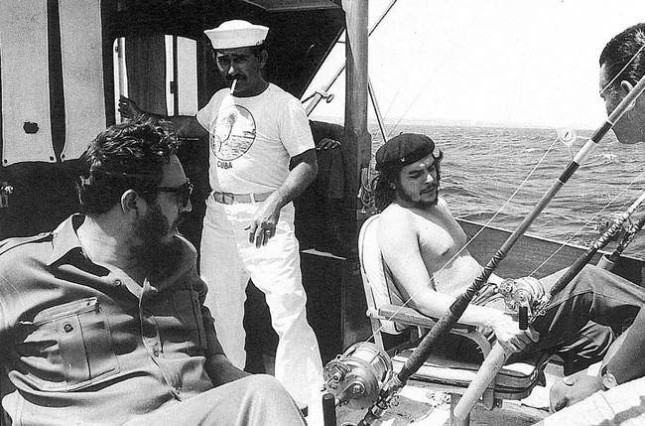

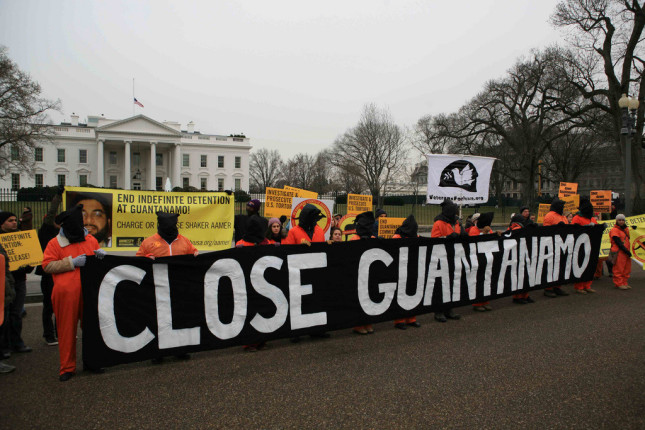
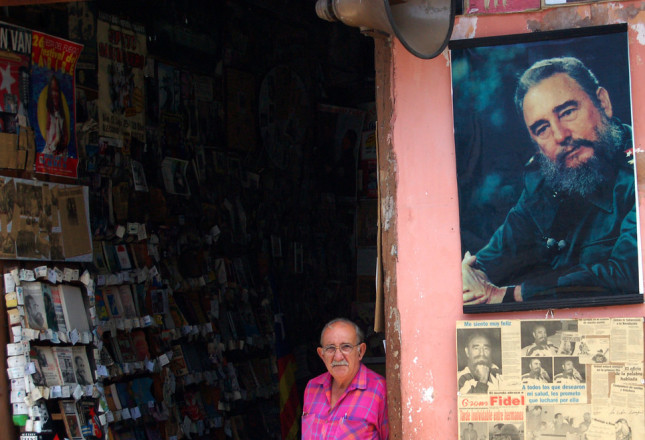
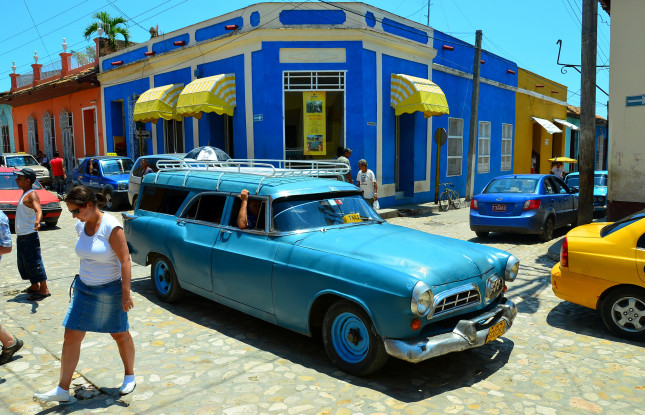
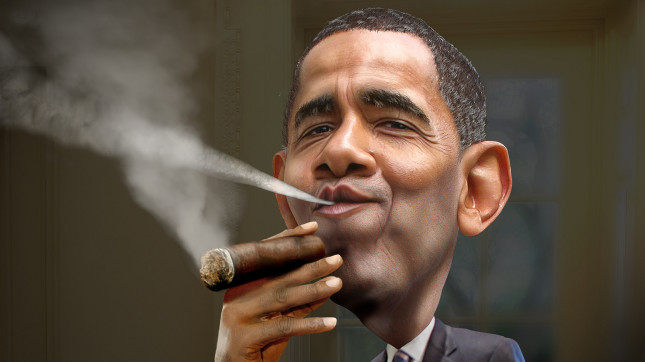



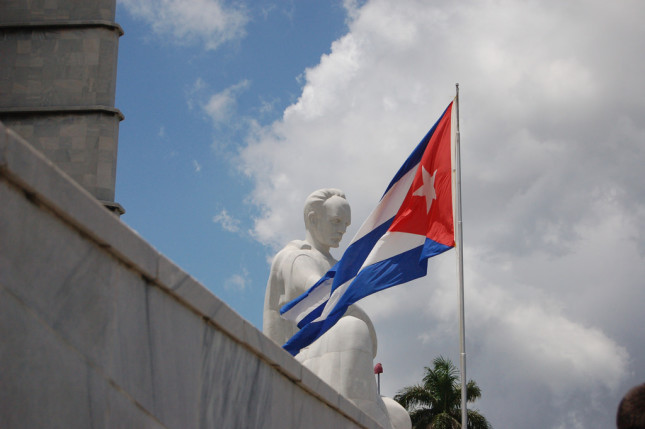


 How ocean pollution affects humans – Graphic by the team at
How ocean pollution affects humans – Graphic by the team at 